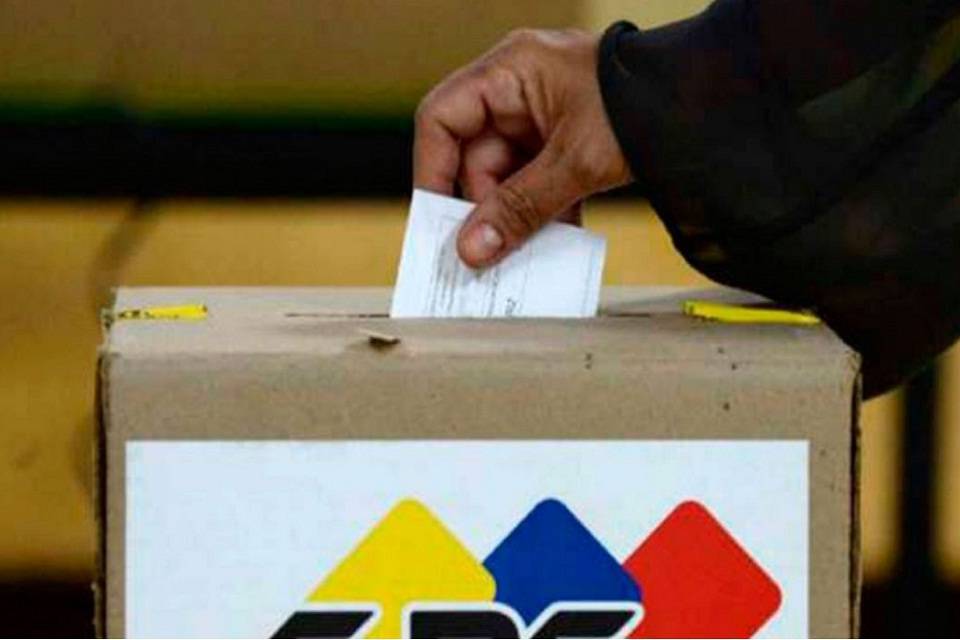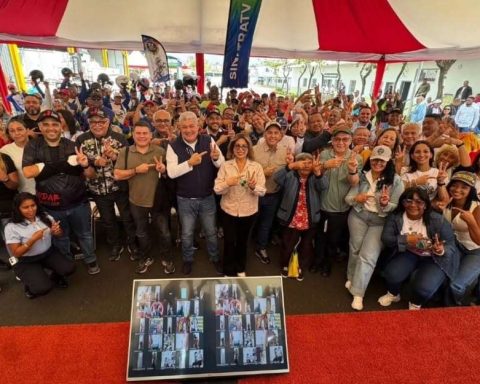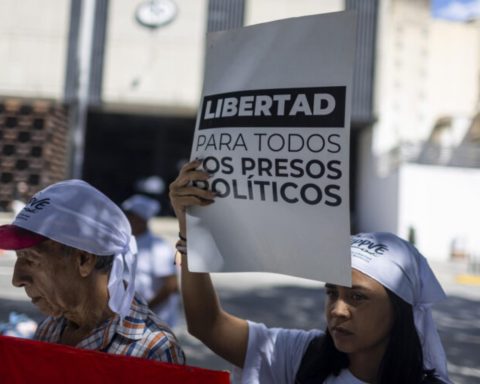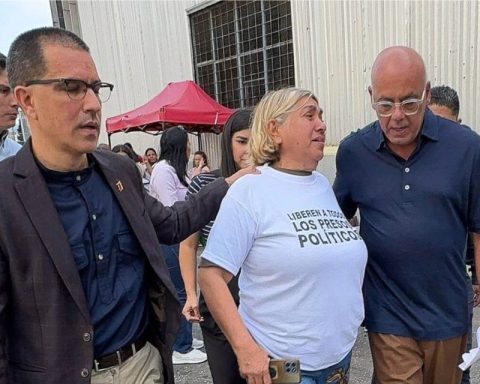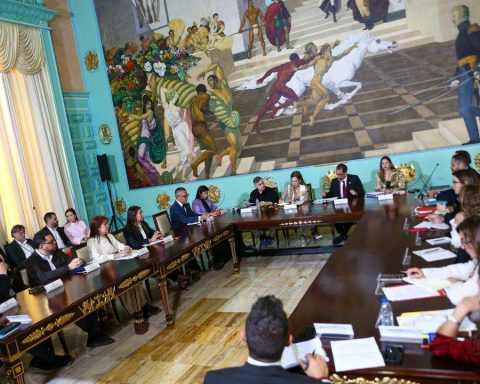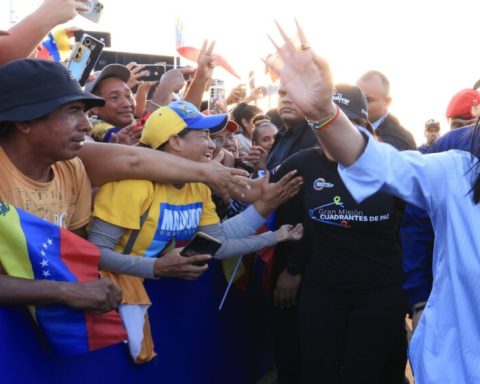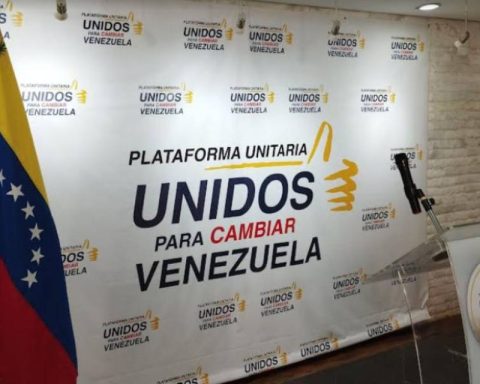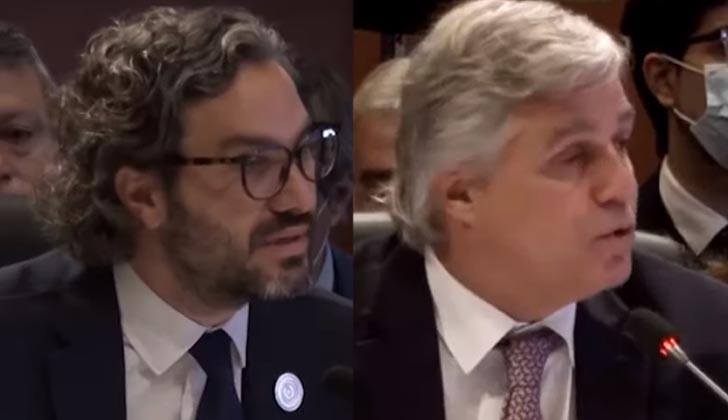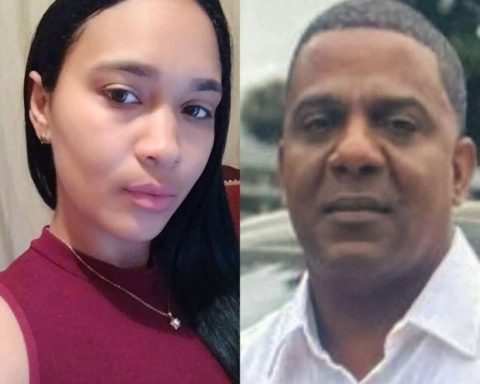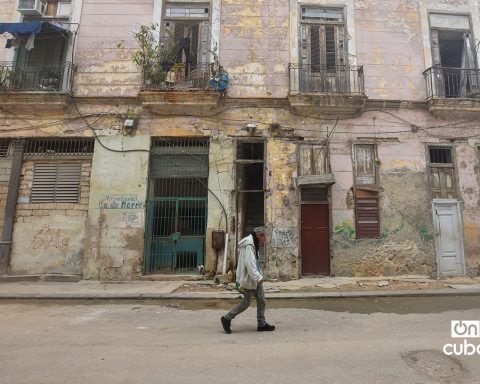The organization VOTE presented to the CNE a proposal to regulate the registration in the RE and the suffrage of Venezuelans abroad. The platform, made up of technical and retired personnel from the governing body, proposes to create software that guarantees the participation of nationals living in other nations. The former president of the CNE tells SuchWhich emphasizes that Venezuelan migration is a serious problem for the exercise of the vote, since it is estimated that 20% of the electoral roll is outside the nation and at present their right to elect is not guaranteed.
Technical and retired staff of the National Electoral Council (CNE), grouped in the Electoral Technical Volunteer (VOTE), submitted to the governing body a proposal whose objective is to regulate and guarantee the registration and updating of data in the Electoral Registry (RE) and the exercise of the vote to Venezuelans abroad.
VOTE asserted that its proposal is based on the electoral legal regulations that regulate all processes in the nation, which require that all the different phases must be carried out in an automated manner.
The proposal, signed by the former president of the CNE Andrés Caleca, the former principal Ildemaro Martínez and the former legal consultant Celiz Mendoza, establishes in article two that “to register and be updated in the electoral register, the citizen must have the status of a voter, a quality that necessary for the exercise of suffrage. The National Electoral Council must carry out an informative and motivational campaign so that citizens come to register or update themselves using the technology or the automated system implemented as the most suitable for the electoral body.
Article three of the initiative, meanwhile, establishes that the electoral entity must designate a special commission attached to the civil and electoral registry commission in order to attend to the requests that citizens abroad require, after verifying the requirements for the registration update and filtering of voters.
The articles, if they come into force, will order the establishment of an easily accessible automated system to make the registration of your application effective, taking into account that the data required for registration and updating may be provided through the technological platform designed for such purpose. on the official website of the National Electoral Council.
CNE without excuses
The former president of the CNE was consulted on the subject Andrew Caleca explains to SuchWhich that the reason that prompted them to present the regulation proposal has to do with the magnitude that the problem of the Venezuelan diaspora has reached. He recalled that in the 1999 constitution this inconvenience was taken care of, when there was hardly any mention of just over one hundred thousand citizens living outside the national territory.
“It was a minor problem,” Caleca emphasizes in a telephone interview, while stressing that he was given the right to participate only in the presidential elections. “Later on it should extend to other processes,” he adds.
The former rector of the CNE maintains that Venezuelan migration today, electorally speaking, is a gigantic problem. Based on figures from the agencies of the United Nations Organization, he points out that there are about seven million Venezuelans who are abroad, in short, the number is equivalent to about 20% of the electoral roll.
“The CNE cannot turn a blind eye. It is a problem that must be faced. In the previous elections it was not confronted, now there is time to do it. We have been discussing this for over a year. We have had unusual responses such as a rector telling us that this was impossible », he exposes.
The instrument presented by VOTE also proposes the elaboration of a list of voters that will form the preliminary and later the definitive data of all those who have the right to vote in the elections that are held in the nation.
Caleca, in this same line, emphasizes the creation of the automated system. He is emphatic in ensuring that nothing in the proposal is impossible. In the same way, he emphasizes that the State is obliged to make it possible for Venezuelans abroad to vote.
The former rector affirms that the Constitution obliges the State to guarantee that citizens exercise their right to vote and in this case, he argues, the CNE was established to facilitate elections. He stresses that if this has not been done so far, it is due to a lack of political will.
We have just submitted to the CNE our proposal for a Regulation to facilitate the process of registering and updating the Electoral Registry, as well as the exercise of the vote by Venezuelans abroad. We hope they don’t send it to the trash can. ?
– Andrés Caleca (@ajcaleca) July 19, 2022
State has platforms to regulate and control
Among the main hits that the project tackles is the problem of subscribing to the electoral registry. Andrés Caleca gives as an example “two sides of the coin”: the first could be said to be the cases of people who are now 18 years old and must be added to the RE and the cases of other people who must show that they moved. For both contexts, it is proposed to create a special registration commission for Venezuelans abroad.
The other scenario that Caleca details and addresses in the draft regulation is about the mere exercise of voting by citizens living outside of Venezuela. In this case, the creation of a commission that is in charge of auditing the suffrage of nationals abroad is promoted.
In his opinion, the issue of consulates or the lack of bilateral relations should not be used as an excuse. He stresses that the process requires software. He assures this is not a fantasy, since the Maduro government already makes use of platforms with which it even rations gasoline.
“They want to sell that it is impossible due to the issue of relations or the lack of offices in other countries, but it is as if they were saying that from 2024 everyone has to vote in the main offices of the CNE, just as they want to do with the citizens abroad, that if there is no consulate there is no vote”, he points out. Likewise, he reiterates that the entity is obliged to establish mechanisms to guarantee that citizens pay from wherever they are.
Here you can consult the letter of introduction of the proposal, signed by the Ig. Ildemaro Martínez, Dr. Celiz Mendoza and myself. pic.twitter.com/pYD0tB1AfG
– Andrés Caleca (@ajcaleca) July 19, 2022
Gradual reduction of ER
From other platforms such as the civil association Súmate, the need for the RE to be updated has been denounced. The organization has recalled in advancing this year that there are more than 10 million Venezuelans who would need to register or update their residence and voting center data inside and outside the country, from April 20, 2022 to December 2024, date on which the next elections should be held.
Súmate has asserted that at least in the first half of the year the CNE did not comply with its obligation to update the Electoral Registry. An evidence of this, he highlights, are his last three cuts of the RE, in which it was shown that the number of voters has gradually decreased.
According to official information from the CNE, the reduction in the number of voters between the court date of July 15, 2021 and that of January 31, 2022 was 38,424 (22 abroad, 38,035 Venezuelans and 337 foreigners within the country) and Between the cutoff of January 31, 2022 and the cutoff of April 30, 2022, the decrease in the number of voters was 15,935 (18 abroad, 15,811 Venezuelans and 106 foreigners within the country).
Post Views:
177
